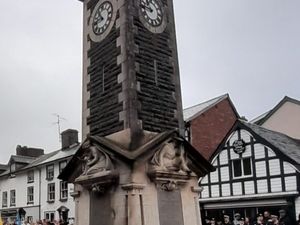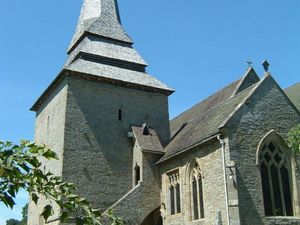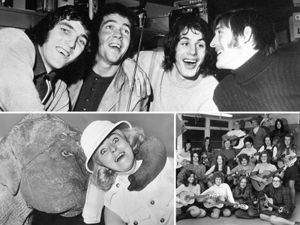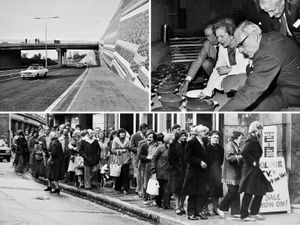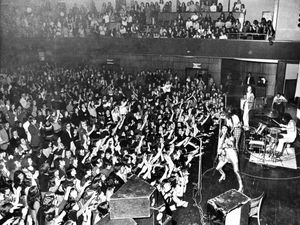Robert Maxwell: 30 years since the mysterious death of an audacious tycoon
At 4.45 in the morning, Robert Maxwell called a crew member on his £10 million yacht to complain about the temperature.
Less than half an hour earlier, he had phoned to complain he was too hot. Now he was too cold.
"Turn the air conditioning off," he growled. These are believed to be the last words he ever spoke.
It is 30 years today since Maxwell, the man who had for decades vied with Rupert Murdoch to dominate Britain's media, was found dead in the sea, having apparently plunged from the deck of his yacht the Lady Ghislaine. Did he fall? Did he jump? Was he pushed? Some three decades on, the cause of his death remains cloaked in a mystery that the man who revelled in controversy would probably have loved.
Back in the 80s, Maxwell and Murdoch were the two titans of the British media, and made little effort to disguise their dislike of on another. But while they both had similar ambitions, they could not have been further apart in personality: Murdoch was the publicity-shy Australian who rarely gave interviews, Maxwell was brash, ostentatious, even vulgar, revelling in his notoriety as the man millions loved to hate.
From the grinding poverty of his childhood as a Jewish refugee from Nazi-occupied Czechoslovakia – most of his family perished in Auschwitz – to the height of his power as the owner of the Daily Mirror, the New York Daily News, and not one but two top-flight football clubs, Maxwell's remarkable life would have made the basis of a good movie. Except the most dramatic plot was yet to come.
While the tributes flooded in, with everyone from President George Bush to Soviet leader Mikhail Gorbachev sharing their own personal anecdotes, it quickly emerged that the self-styled master of the universe and benevolent philanthropist was not quite all he seemed. His vast empire had been built on foundations of sand, propped up only by fraud that Maxwell had been committing on an unprecedented scale.
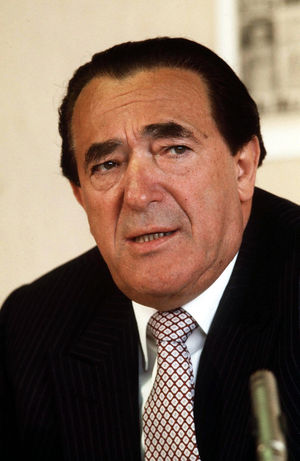
It later emerged that Maxwell had a heated argument with his son Kevin the day before his death, having being summoned to the Bank of England over a £50 million default on his debts. Maxwell ignored the demand, instead taking his yacht the lady Ghislaine to the Canary Islands. In the days that followed his death, it emerged that £440 million had gone missing from the Mirror Group pension fund, and suddenly the great and the good were much less vocal in their adulation.
Born Jan Hoch in 1923 to a poor family in what is now the Ukraine, Maxwell joined the Czech army-in-exile after fleeing Nazi persecution, before enlisting with the British forces in 1943, joining the North Staffordshire regiment. Rising to the rank of captain, he was presented with the Military Cross by Field Marshall Bernard Montgomery for his wartime heroics. He built Pergamon Press into one of Britain's biggest publishers of scientific books, although his business methods led to him being declared "unfit to hold the stewardship of a public company" by the DTI in 1971.
As a young man he dreamed of being Prime Minister, but after being elected Labour MP for Buckingham in 1964, his political ambitions began to stall. His ruthless business dealings with trade unions made him a deeply divisive figure within the Labour Party, and when he lost his seat in 1970, his political career appeared to be over.
Instead, he turned his attention to sport, rescuing cash-strapped Oxford United football club from extinction in 1982. But his popularity was shortlived. Months later he alienated the entire fan base by proposing a merger with arch-rivals Reading. In a typically combative style, he branded the Oxford fans "yobbos" and threatened to put the club into liquidation if he didn't get his way. When the merger plans collapsed, he brazened the controversy out, and led Oxford to the old First Division for the first time in their history.
He caused even more outrage in 1987 when he bought top-flight rivals Derby County, getting round restrictions banning individuals from controlling more than one club by putting his son Kevin in charge at Oxford. And if that were not audacious enough, Oxford then sold star striker Dean Saunders to Derby, prompting the furious resignation of Oxford manager Mark Lawrenson.
But it may well have been his obsessive feud with Murdoch that led to his ultimate downfall. Maxwell is said to have made an enemy of Murdoch in the 1960s, when he unsuccessfully attempted to fleece the young Australian by selling him a worthless asset. Murdoch took his revenge in 1969 when he beat Maxwell in the race to buy News of the World in 1969, and repeated the feat a few months later when he also bought The Sun – then a struggling broadsheet – from under Maxwell's nose. In 1981, Murdoch made it a hat-trick when he beat Maxwell to the purchase of The Times and Sunday Times. In 1984, Maxwell finally achieved his ambition of becoming a Fleet Street proprietor when he bought the Mirror Group for £113 million, setting him on course for a high-stakes game of one-upmanship with Murdoch.
Murdoch's Sun had overtaken the Mirror to become the UK's top-selling newspaper in 1978, but Maxwell quickly took the battle to his nemesis by cutting the price of the Daily Mirror and embarking on what now seems a rather quaint bingo war with the tabloid rival.
Stories about the way Maxwell treated his staff were the stuff of legends. One of the most infamous anecdotes surrounded a delivery driver Maxwell caught smoking in the lift at the headquarters of his publishing empire in Canary Wharf. When the man ignored Maxwell's order to put his cigarette out, the magnate asked the driver how much he was paid, produced two week's wages from his wallet, and informed him he was fired. The driver wasn't too upset by this, though. He didn't actually work for Maxwell, he was making a delivery from a supplier.
Maxwell – whose favourite daughter Ghislaine is now awaiting trial accused of procuring young girls for the disgraced financier Jeffrey Epstein – was famed for the extravagant parties he threw at Headington Hill Hall, the Oxfordshire pile he leased off the local council. But the one he held to celebrate his 65th birthday in 1988 eclipsed them all, with even his dutiful wife Betty convinced he had gone too far. More than 3,000 guests were invited to the three-day shindig, captains of industry took it in turn to pay homily. The proceedings ended with a firework display, in which the night sky was lit with the words "Happy Birthday Bob".
But not everybody stayed to watch. Mike Molloy, his editor-in-chief at the Daily Mirror decided to have a snoop around the Maxwell mansion, which his boss had described as "the country's best council house." Peering into his drawing rooms, he noted something odd about the books that lined the shelves.
"When I looked more closely, I saw they weren’t real books. They were made out of cardboard," he said. And with these few words, he perhaps summed up the life of this most remarkable figure, who managed to fool the world with his swashbuckling bravado.

